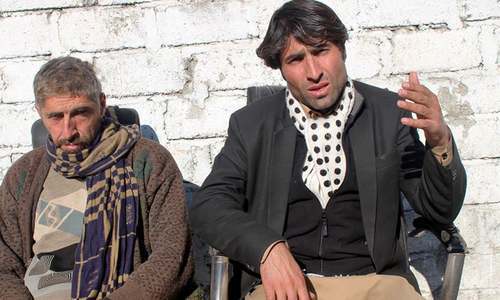ISLAMABAD: A human rights activist has accused the leaders of a former ruling party in Khyber Pakhtunkhwa and the provincial police of trying to protect people involved in the Kohistan killings case.
Dr Farzana Bari was briefing the Senate Standing Committee on Human Rights which held a hearing on the case at the Parliament House on Monday. The committee’s meeting was chaired by Dr Jehanzeb Jamaldini.
Read:Kohistan killings
The Kohistan killings case came to light in 2011 when reports emerged that an online video of a young man dancing before a group of teenage girls had led to murder. Five girls in the audience, as well as the man who was dancing and his two brothers, were allegedly murdered on the order of a jirga.
Mohammad Afzal Kohistani, the brother of one of the boys, who was pursuing the case in the Supreme Court was also murdered last month.
Dr Bari told the committee that there were some missing links in the whole story of the Kohistan killings case, adding that some members of the provincial bureaucracy and politicians were colluding with each other to protect the people behind the killings. “It is not only the KP police, but also leaders of the Awami National Party (ANP) who have been instrumental in protecting the killers,” she added.
Expressing the fear that she may also be harmed for pursing this case, Dr Bari said the KP police should be held responsible if anything happened to her.
She alleged that the ANP provincial government in 2012 had tried to play down the matter. When then chief justice of Pakistan (CJP) Iftikhar Mohammad Chaudhry took a suo motu notice on the issue, senior police officers in KP informed the Supreme Court that the girls seen in the video had not been murdered and that they were alive.
Justice Chaudhry had directed the then interior minister, Rehman Malik, to send a mission to Kohistan for holding a meeting with the girls. “I was member of that mission,” Dr Bari said, adding that other members of the mission were Bushra Gohar, an ANP member of the National Assembly at that time; Mian Iftikhar, the then KP minister; and Munira Abbasi, a sessions judge from Swabi.
Dr Bari said that when the mission visited the area two girls were brought before it and the provincial officials claimed that these were the girls seen in the video. “I objected that these were not the ones seen in the video, but both Bushra Gohar and the sessions judge stated that these were the same girls,” she added.
Later, the then CJP had closed the case with the condition that it could be reopened anytime.
“I sent the pictures of the girls to a digital lab in the United Kingdom and its result was that they have only 14 and 40 per cent face resemblance from two girls seen in the video,” Dr Bari said.
The case was reopened after the brothers of Afzal Kohistani were killed,” she said, adding: “Afzal repeatedly asked for police protection before his murder last month.”
When the senators asked about the link between the five girls and Afzal, they were informed that one of his brothers was also seen in the video.
Dr Bari also raised questions over the investigation into the murder of Afzal Kohistani.
She accused the KP police of trying to project the people involved in the murder.
The committee directed the KP police to provide security to three other brothers of Afzal who were now pursuing the case, as well as the police in other provinces to ensure safety of Dr Bari.
On another agenda item of the meeting, the committee was informed by Securities and Exchange Commission of Pakistan chairman Farrukh Sabzwari that almost all registered companies would have female directors in their boards in two years.
Published in Dawn, April 2nd, 2019
















































